CERN's New Particle Accelerator Promises Window on Big Bang
Published:
25 July 2004 y., Sunday
Scientists probing something as big as the origins of the universe sometimes need equipment to match. At the European nuclear research center CERN in Geneva, they're building the most powerful particle accelerator ever. The Large Hadron Collider, as it's called, is expected be able to recreate the conditions that existed at the time of the Big Bang, when the universe was born. Scientists say they hope the new tool will help them unravel the mysteries of matter and energy, and confirm or demolish existing theories.
Contrary to what its name implies, the Big Bang was not necessarily an explosion. Scientists consider the Big Bang to be more of a marker to note that the universe had a beginning. It is the moment in which the universe, space and time were created. CERN Physicist Richard Jacobsson says scientists do not know why or how the Big Bang occurred. But big particle accelerators such as the Large Hadron Collider help them to understand the process.
When the Large Hadron Collider (LHC) is completed in 2007, the superconducting magnets in the machine will operate at 271 degrees, just above absolute zero. However, Mr. Jacobsson says that the temperature created in the proton-proton collisions will be one billion times hotter than at the center of the sun.
Some 6,500 scientists from more than 80 countries currently collaborate on hundreds of ongoing experiments at CERN. The world's biggest particle physics laboratory is celebrating its 50th anniversary this year.
Šaltinis:
voanews.com
Copying, publishing, announcing any information from the News.lt portal without written permission of News.lt editorial office is prohibited.
The most popular articles

The European Commission announced today the award of three of the six contracts for the procurement of Galileo’s initial operational capability.
more »
 The need for energy that does not come from oil, equality between the sexes and more spending on education are just some of the things people have requested using the Parliament's choice boxes.
more »
The need for energy that does not come from oil, equality between the sexes and more spending on education are just some of the things people have requested using the Parliament's choice boxes.
more »
 This week marks the launch of the tenth Interest Rate Challenge, the competition designed to give 16 to 18 year old students across the UK the opportunity to take on the role of the Bank’s Monetary Policy Committee and set monetary policy for the UK to meet the inflation target of 2.0%.
more »
This week marks the launch of the tenth Interest Rate Challenge, the competition designed to give 16 to 18 year old students across the UK the opportunity to take on the role of the Bank’s Monetary Policy Committee and set monetary policy for the UK to meet the inflation target of 2.0%.
more »
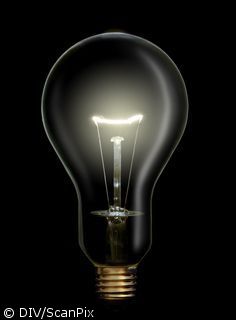 One California company unveiled a solution - a prototype energy station that swaps electric vehicles' empty batteries for fully charged ones.
more »
One California company unveiled a solution - a prototype energy station that swaps electric vehicles' empty batteries for fully charged ones.
more »
 NASA officials have confirmed that the space shuttle Atlantis was hit by a piece of debris that nicked part of its heat shield.
more »
NASA officials have confirmed that the space shuttle Atlantis was hit by a piece of debris that nicked part of its heat shield.
more »
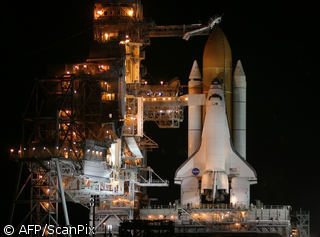 Atlantis carried a seven-member crew that was scheduled to perform five spacewalks to install and repair instruments and replace positioning gyroscopes on the telescope, which orbits 350 miles above Earth.
more »
Atlantis carried a seven-member crew that was scheduled to perform five spacewalks to install and repair instruments and replace positioning gyroscopes on the telescope, which orbits 350 miles above Earth.
more »
 Artificial grass maker Ten Cate is developing an intelligent pitch in the Netherlands.
more »
Artificial grass maker Ten Cate is developing an intelligent pitch in the Netherlands.
more »
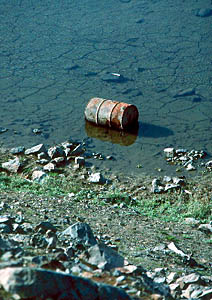 Russian scientist Olga Speranskaya has taken on one very tough job - to help clean up the vast network of toxic chemical sites in the former Soviet states.
more »
Russian scientist Olga Speranskaya has taken on one very tough job - to help clean up the vast network of toxic chemical sites in the former Soviet states.
more »
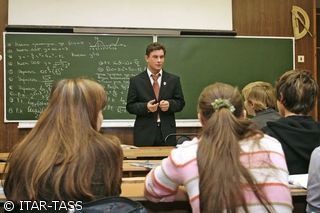 European politicians will be visiting schools around Europe as part of ‘spring day’ 2009.
more »
European politicians will be visiting schools around Europe as part of ‘spring day’ 2009.
more »
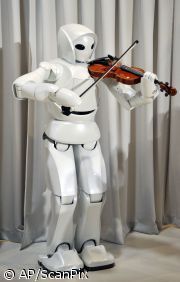 The current experiments show a subject an image and then reconstruct that image based on scans of the brain's visual cortex.
more »
The current experiments show a subject an image and then reconstruct that image based on scans of the brain's visual cortex.
more »
 The children of people who come to live in Europe will have to learn the language of the country they enter from pre-school age.
more »
The children of people who come to live in Europe will have to learn the language of the country they enter from pre-school age.
more »